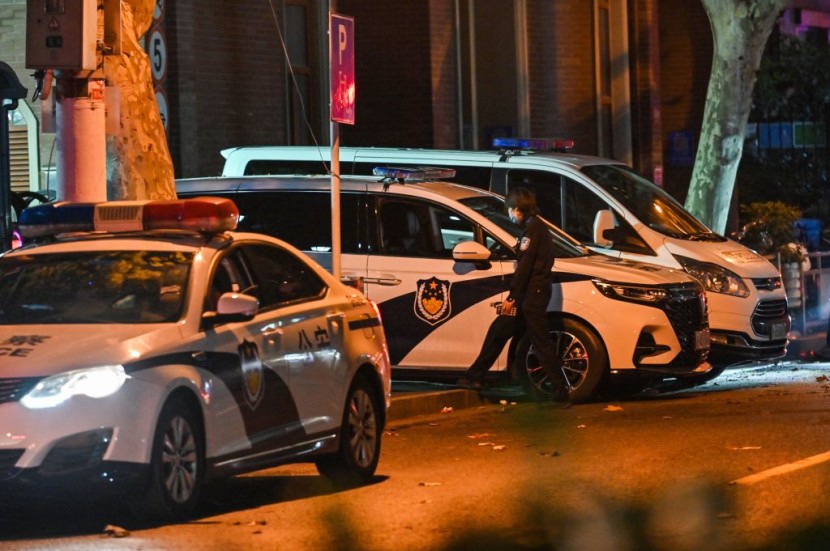
Chinese authorities on Tuesday said that the BBC journalist who was arrested refused to cooperate and acted as if he were a victim of the situation amid claims that the individual was beaten and taken into custody as he was covering sweeping anti-government protests.
In his remarks during a press conference, China's Foreign Ministry spokesperson Zhao Lijian said that the journalist refused to cooperate with the police's law enforcement efforts and later acted as if he were a victim of authorities.
China's Arrest of BBC Journalist
The Chinese officials went on to say that BBC immediately twisted the narrative of the story and propagated the idea that the journalist was arrested and beaten by police as he was doing his job. Zhao noted that the report was part of an effort to paint China as the guilty party.
The spokesperson also noted that the deliberate attempt to distort the truth was something that they were familiar with as part of BBC's "distasteful playbook." The journalist was identified as Edward Lawrence who was working to cover the story of mass anti-government protests in Shanghai that occurred on Sunday, as per Business Insider.
While doing his job, Lawrence was allegedly arrested and detained by police for several hours before he regained his freedom. In several videos shared on social media platforms, the journalist could be heard asking a bystander to call the British consulate as law enforcement personnel took him away.
Video footage also showed Lawrence getting knocked down, punched, and kicked by police officers. In a Sunday statement, the BBC press team said that the media outlet was extremely concerned about the treatment and well-being of Lawrence while covering the protests in Shanghai.
According to Reuters, protests in Shanghai, Beijing, and several Chinese cities in recent days sought to put an end to stringent coronavirus policies. They come as a show of civil disobedience that is an unprecedented sight since Chinese President Xi Jinping assumed the presidency.
Unacceptable Detention
Shanghai authorities argued that Lawrence did not reveal his identity as a journalist nor did he show them his foreign press card. In China, foreign reporters are mandated to carry government-issued cards that identify themselves as accredited journalists when covering news events.
In a Monday speech, British Prime Minister Rishi Sunak said that instead of listening to the Chinese people's protests, the government decided to crack down further, including assaulting Lawrence. He added that the media and parliamentarians must be able to highlight such issues without sanction.
Following the arrest of the journalist, Zheng Zeguang, the Chinese ambassador to the UK, received a summons to the Foreign Office for a meeting with officials. Foreign Office Minister David Rutley said that the summon for the Chinese representative was an attempt to make clear the "unacceptable and unwarranted" nature of Lawrence's arrest.
In a statement, a Foreign Office source said that demonstrations in China, which involve criticism of the government and leadership, were rare. They added that citizens who understand the risks and consequences of partaking in such protests should send a signal to Beijing that they should begin listening to their people, BBC reported.
Related Article : China Protests: Police Starts Crackdown on Demonstrators; Residents Say Authorities Seeking Phones for Suspicious Content
© 2026 HNGN, All rights reserved. Do not reproduce without permission.




